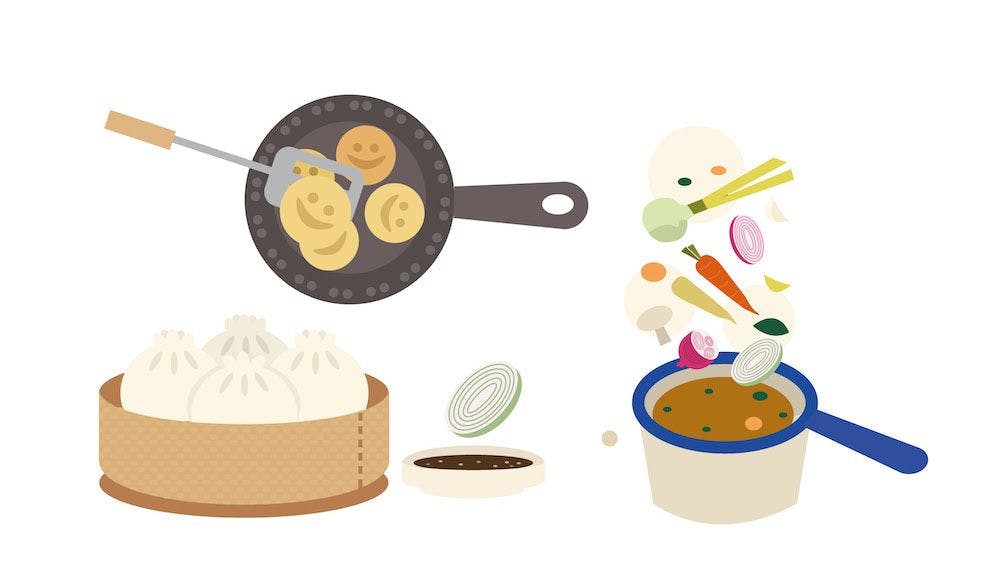
Go on a journey with these five bite-sized servings of meal inspiration
It’s a sense that has the power to completely transport us to another time and place, but how much are you utilising your tastebuds for your wellbeing?
“The relationship we have between food and our emotions starts when we are infants, and continues throughout our entire lives,” says nutritionist Michaella Mazzoni. “There are physiological effects of food that go beyond simple hunger and satiety (the feeling of fullness), and research has shown the impact food has on neurotransmitters and hormonal responses.”
As Michaella points out, certain foods have been found to decrease feelings of stress or low mood – for example, meals heavy in carbohydrates that contain nutrients which support the production of the feel-good hormone serotonin (buttery mash potato, we’re looking at you).
But beyond that, we connect with food and flavours on an emotional level too and, with a little bit of mindfulness, we can harness that power to boost our wellbeing. So, to get you started, why not sink your teeth into these tips?
1. Eat a meal from your childhood
“As infants, we learn to associate food, be it breastmilk or formula, with so much more than just nourishment,” explains Michaella. “It’s also about being soothed during times of stress, and being cared for. Eating a meal from your childhood can be a great way to feel transported back to that feeling of being cared for, and soothed, with food.”
Alphabetti spaghetti, turkey dinosaurs, or the meal that had you lining up for seconds – which foods have the ability to take you on a nostalgia trip? Now’s the time to recreate them, and let the memories come flooding back.

2. Try something you've always been curious about
They say variety is the spice of life, and being adventurous with food is a great way to expand your horizons and open your mind. Stuck in a food rut? Making the same few meals over and over? It’s time to break the cycle with something new.
You might have had your eye on a recipe that looks a little tricky, or spotted an unusual ingredient you haven’t come across before. If so, prepare yourself for the challenge – you might find that you pick up some new skills along the way, making it a rewarding experience.
3. Make someone else's favourite meal
“Although current circumstances do not allow for much socialisation, eating food prepared for you by a loved one has been shown to strengthen relationships and bonds between people,” says Michaella. “So making a friend, family member, or partner’s favourite recipe for yourself could serve as a nice substitute in the meantime.”
We all know that feeling of anticipation and excitement when we introduce someone to something we love. Trying someone else’s favourite food shows you care about the things that they’re passionate about, and it’s a way of sharing experiences – whether you’re together or not.
4. Prepare something with a homegrown ingredient
Whether it’s something dug up from the veggie patch, or herbs trimmed from a windowsill grow box, there’s something undeniably special about eating a meal made with ingredients that you have grown yourself.
“Completing a task like gardening, or even growing microgreens in a jar in your kitchen, helps to promote the production of the neurotransmitter dopamine, which is associated with reward,” adds Michaella.

5. Eat a meal that reminds you of a happy occasion
Be it from a trip away where you sampled a local delicacy, or perhaps a dinner date with the one you love, map out a timeline of memorable meals from happy times, and recreate what was on your plate.
What was it about that meal that made you so happy? It might have been a special place, good company, less stress, or more excitement. This tip starts on your plate but is a nice way to prompt a whole host of questions about what has made you happy in the past, and how you can harness those feelings again.
To connect with a nutritionist to dicuss your eating habits and patterns, visit nutritionist-resource.org.uk/

